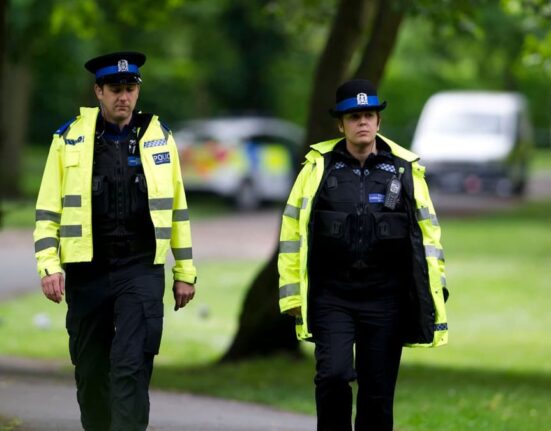Health Reporting in the States Memory cafes offer camaraderie and fun for people with dementia — and their caregivers May 31, 2025 5:00 AM ET Heard on Weekend Edition Saturday From By Lydia McFarlane Memory cafes offer camaraderie and fun for people with dementia — and their caregivers Listen · 3:57 3:57 Transcript Toggle more options Download Embed Embed < iframe src="https://www.npr.org/player/embed/nx-s1-5317646/nx-s1-5476690-1" width="100%" height="290" frameborder="0" scrolling="no" title="NPR embedded audio player"> Transcript Paula Baille leads the group of Sharon Hannamaker, Joe Edwards, Barb Edwards, and Murray Small in a playing of the bells. Aimee Dilger/WVIA News hide caption toggle caption Aimee Dilger/WVIA News
In a cozy community space in Clarks Summit, Pennsylvania, amidst an under-the-sea-themed decor adorned with jellyfish streamers and ocean bubble balloons, Rob Kennedy finds solace. Diagnosed with early-onset Alzheimer’s disease in his late fifties, Kennedy joins a group of kindred spirits at a memory cafe twice a month.
“If they’re not coming to a place like this, they’re doing themselves a disservice. You got to get out there and see people that are laughing.” – Rob Kennedy
As attendees engage in underwater-themed activities like coloring worksheets or testing their wits with trivia games over coffee and pastries, the atmosphere is filled with laughter and companionship. These memory cafes are part of a growing trend across America – safe havens for those grappling with cognitive impairment alongside their dedicated caregivers.
Expanding across all corners of the nation, these gatherings serve as pillars of support for individuals facing memory loss challenges. With more than 600 such cafes now catering to diverse communities nationwide at minimal costs—often just requiring nominal rental fees for hosting spaces—their significance has become increasingly pronounced.
“A Memory Cafe is…where having fun together and being social becomes the primary form of support.” – Jason Karlawish
Jason Karlawish, a geriatrics professor at the University of Pennsylvania’s Perelman School of Medicine underscores how these cafes go beyond therapeutic interventions by fostering social interactions crucial for both patients and their caretakers’ well-being. In an era where dementia cases are projected to soar significantly due to aging populations like the baby boomer cohort, these inclusive settings offer affordable respite from isolation.
The story behind Wisconsin’s thriving network offers an inspiring testament to grassroots initiatives bolstering memory care efforts locally despite broader healthcare funding uncertainties. Susan McFadden’s pioneering work through initiatives such as the Fox Valley Memory Project elucidates how compassion-driven actions can bridge gaps left by systemic challenges.
“It doesn’t require an act of the legislature to do a memory cafe. It takes community engagement.” – Susan McFadden
McFadden’s journey from learning about successful models abroad to spearheading transformative programs back home showcases the power individuals hold in reshaping communal landscapes one gathering at a time. With each anecdote shared over trivia sessions or crafts corner conversations at these vibrant hubs across America—from Pennsylvania’s Clarks Summit to Ohio’s Toledo—a tapestry woven with resilience emerges.
As we navigate shifting sands in healthcare policies impacting essential services like memory cafes, it becomes evident that investments in human connections yield immeasurable returns far beyond financial metrics. In every stroke of color on activity sheets or echo of shared laughter resonating within those welcoming spaces lies a bond transcending barriers imposed by illnesses.
Amidst uncertain tomorrows marred by escalating dementia diagnoses nationwide looms a beacon—an invitation extended through open doors gracing memory cafes countrywide—beckoning souls seeking solace into realms where camaraderie transcends forgetfulness.








Leave feedback about this